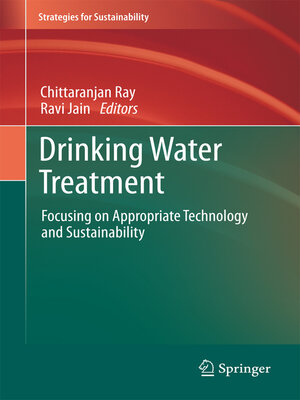Drinking Water Treatment
ebook ∣ Focusing on Appropriate Technology and Sustainability · Strategies for Sustainability
By Chittaranjan Ray

Sign up to save your library
With an OverDrive account, you can save your favorite libraries for at-a-glance information about availability. Find out more about OverDrive accounts.
Find this title in Libby, the library reading app by OverDrive.



Search for a digital library with this title
Title found at these libraries:
| Library Name | Distance |
|---|---|
| Loading... |
Sustainable technologies for water supply are urgently needed if water has to be supplied to billions of less fortunate people with inadequate access to water. These technologies must be simple, less expensive, less energy intensive, and easy to maintain for their adaptation among the poor masses.
Four appropriate technologies are discussed here: solar pasteurization, membrane desalination, natural filtration (riverbank filtration), and solar distillation. Solar pasteurization can be a useful means of producing water at remote, but sunny locations where fuel may not be easily available for boiling water. Membrane desalination will remain as a viable means of drinking water production for individual households to large communities. Various membrane filtration techniques as well as the means to "democratize" membrane filtration have been presented. Riverbank filtration is a "natural" filtration technique where drinking water is produced by placing wells on the banks of rivers. The riverbed/bank material and the underlying aquifer act as natural filters to remove pollutants from river water. Solar distillation can be a viable method of drinking water production for individual households to small communities without the input of external energy. Sustainability framework and technology transfer are discussed through transdisciplinary analysis.







